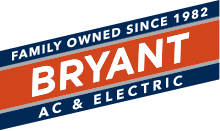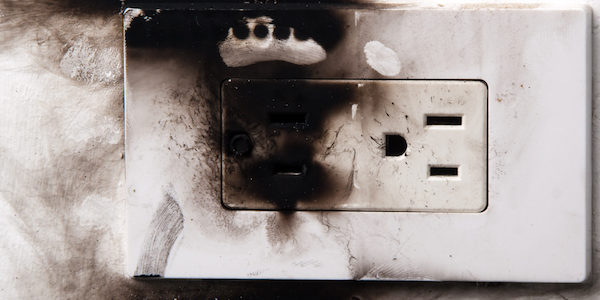According to the Electrical Safety Foundation International, more than 30,000 non-fatal shock accidents happen every year. Electrical shock is relatively easy to prevent if you know what to look for and what to avoid. With some basic knowledge and safety training, you can spot and prevent potential electric shock.
Install Outlet Plug Covers
Outlet plug covers are a great first step to ensuring electrical safety especially if you have children. Some newer GFCI outlets will have a feature built in that blocks the open plugs from tampering when they are not in use. The outlet will only open when a plug is inserted into all of the openings at the same time. This feature will help prevent any electrical dangers from children tampering with outlets.
Always Check For Socket Voltage
When replacing light bulbs, it is important to keep track of voltage and wattage. A light bulb can short out when inserted into a socket well over its capacity. You can prevent breaking a bulb and creating a short circuit if you keep track of light fixture voltages and ratings. You can usually see the recommended maximum wattage printed around the light bulb socket. It’s wise to use light bulbs with equal or lesser wattage so you don’t overload the lamp wiring.
Replace Damaged Fixtures
Any electrical fixtures that spark, give out small shocks, frequently short circuit, or has frayed wires is not safe to use and may need to be fixed or replaced. Switches and outlets will wear down over time with routine use and should be replaced to assure electrical connections remain stable. If an outlet or switch cover plate is broken it is also important to replace it in a timely manner. The cover plate will prevent any tampering of the electrical connections and wiring.
Extension and Power Cord Safety
When using extension cords throughout your home, make sure they are out of the way and do not pose any tripping dangers. When storing cords, don’t let them twist or get into haphazard knots or else they may tear. Tuck them away somewhere that small children can’t find them and pets can’t chew on them. Many hardware stores sell cord organizers to make this easy for you.
Prevent Outlet Overloading
Try to avoid having too many heavy appliances plugged in and running from the same outlets or power strips. This can lead to overheating, a short circuit, or a tripped breaker. Use extension cords sparingly and try to limit their use to temporary arrangements when doing work around the house. If you’re constantly in need of extension cords, you might be better off just having another outlet installed.
Avoid Electrical Water Damage
Store and use electrical devices away from water.
Never leave electrical appliances somewhere they can easily fall into sinks or bathtubs. If an appliance accidentally falls into the water while plugged in, turn off the power to that circuit before you remove the object from the water. Then let the appliance fully dry and ask an electrician if it’s still acceptable to use. Store outdoor electrical appliances in a dry place where they are safe from rain, hoses, or swimming pools.
Shut Off Breakers When Remodeling
If you are doing electrical remodeling or working on any projects that require drilling or cutting into walls, turn off all appropriate power sources. Even if you are doing small tasks like drilling a hole in a wall it is still best if you turn off all circuits that may be sending electricity through wires in the wall. If you’re the one doing the work, do not assume that someone else has turned off the power sources. Always double check for yourself for your own safety.
Professional Electrical Help
Don’t hesitate to call a professional with questions if an electrical job beyond your scope. A tiny mistake can lead to serious consequences, so hire a licensed electrician for any complicated or dangerous jobs. Contact Bryant Electric Service today!



